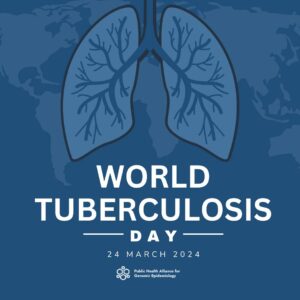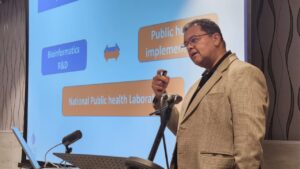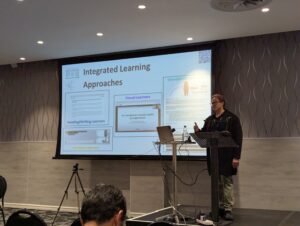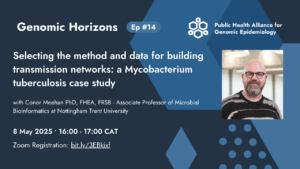March 24 marks a significant date on the global health calendar — World TB Day.

Each year, the global community comes together for this occasion that is dedicated to shedding light on one of humanity’s most formidable adversaries: Mycobacterium tuberculosis (TB). This insidious infectious disease continues to exact a heavy toll on lives, communities, and economies worldwide. The significance of this day extends beyond mere acknowledgment; it serves as a poignant reminder of the urgent need to bolster public awareness and comprehension of TB’s profound impacts.
Under the banner of “Yes! We can end TB!”, the theme for World TB Day 2024 resonates with a resounding message of optimism and determination. It symbolizes a collective resolve to reignite efforts aimed at stemming the tide of the TB epidemic. This theme encapsulates the hope that, despite the challenges, progress towards eradicating TB is not only conceivable but achievable.
PHA4GE has spearheaded initiatives such as the Mycobacterium tuberculosis Bioinformatics Guidance Document, led by the Bioinformatics Pipelines & Visualization Working Group, to promote standardization, portability and reproducibility across environments, contexts and resources in assisting researchers and public health laboratories. Comprised of dedicated individuals including:
Sara Rey – Public Health Wales
Marc Niebel – BHSCT Regional Virology Laboratory
Emma Doughty – Theiagen Genomics
Peter van Heusden – SANBI
Catie Williams – Public Health Wales
Tracey Calvert-Joshua – SANBI
This project represents a concerted effort to leverage the power of bioinformatics in the fight against TB.
Under the adept leadership of Jennifer Guthrie (University of Western Ontario), the Mycobacterium tuberculosis Bioinformatics Guidance Document aims to provide invaluable insights and resources to aid in the understanding and combatting of TB. “To leverage recently acquired sequencing capacity due to the COVID-19 pandemic, many labs are interested in sequencing Mycobacterium tuberculosis genomes,” says Guthrie. While some sections of the document are still a work in progress, the overarching mission remains clear: to harness collective expertise and innovation in pursuit of more effective TB management and eradication strategies. “Our guidance document is designed to offer direction for those engaged in TB bioinformatics analyses, pointing them towards the pertinent knowledge and tools needed.”
For those impassioned by the cause and eager to contribute, an open invitation stands to join the Bioinformatics Pipelines & Visualization Working Group. By fostering collaboration and knowledge-sharing, this collective effort holds the promise of catalyzing meaningful advancements in the battle against TB. As we observe World TB Day 2024, let us reaffirm our commitment to the vision of a world free from the devastation of tuberculosis, where health and prosperity prevail for all.
Zenande Mgijima



